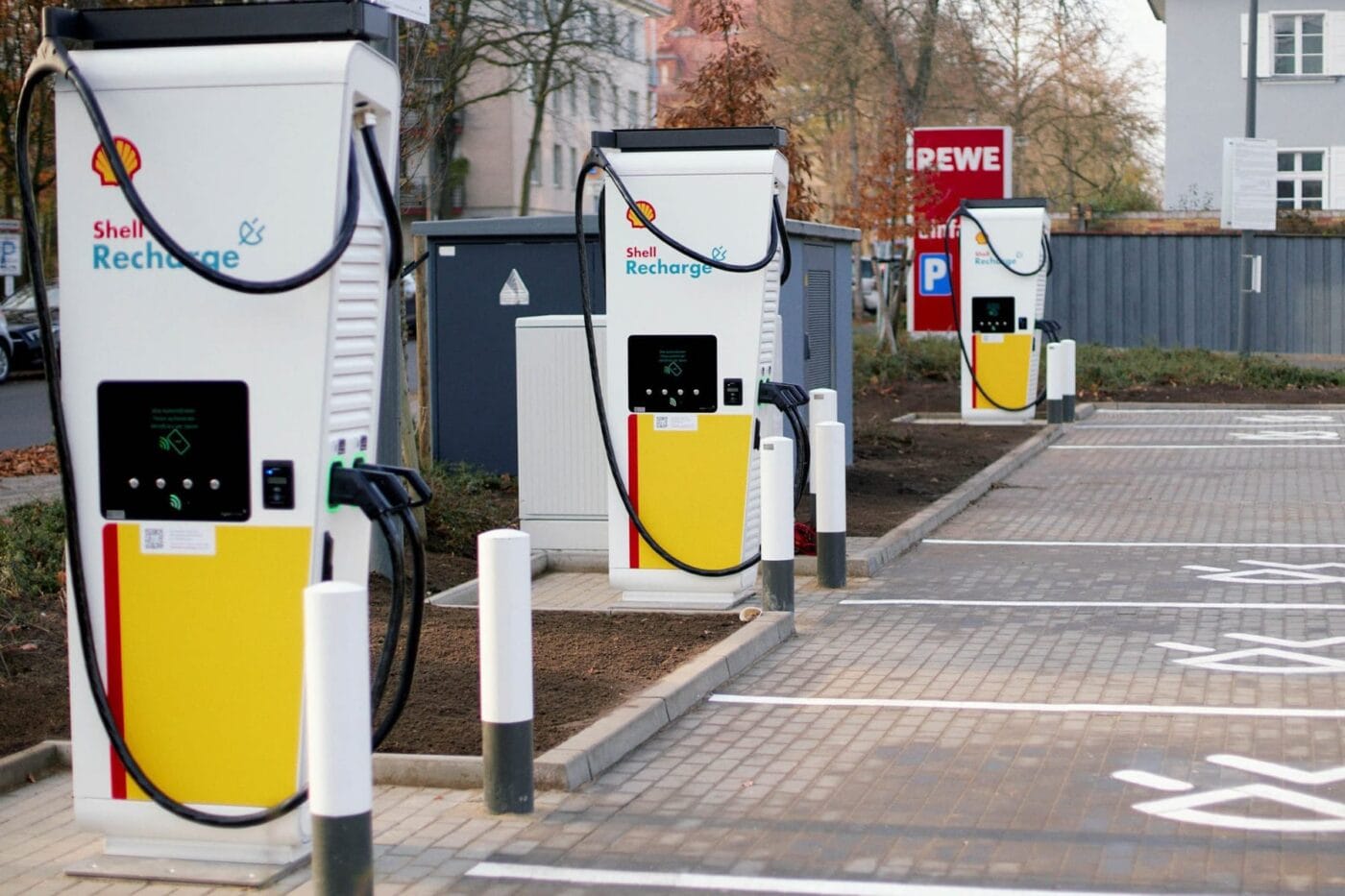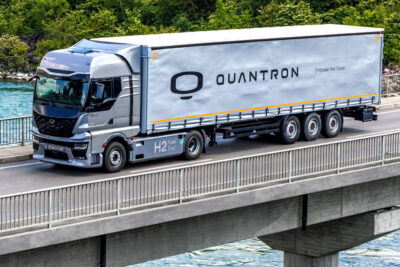Shell tests dynamic prices at fast chargers
With dynamic pricing for ultra-fast charging, Shell will in future orient its more than 1,600 charging points more closely to fluctuations in the electricity exchange price, also known as the spot price. The exact prices, which also include components such as grid fees, electricity tax, operation and grid investments, may vary depending on the electricity exchange price and other factors, as the company reports.
Nevertheless, there is a rough estimate: at the start of the pilot project on 30 June, the maximum difference over the course of the day was six cents per kilowatt hour. “Charging at times when there is a lot of renewable energy in the grid helps to stabilise the power grid,” says Florian Glattes, General Manager Shell Mobility DACH. “And we can pass on any price advantages to customers at these times.”
| Standard-prices | Prices in the pilot | |
|---|---|---|
| Shell Recharge Basic* | 0,59 €/kWh | 0,56-0,67 €/kWh |
| Shell Recharge e-Deal* | 0,44 €/kWh | 0,42-0,50 €/kWh |
| Roaming AC | 0,59 €/kWh | 0,59 €/kWh |
| Roaming DC | 0,79 €/kWh | 0,79 €/kWh |
*At Shell Recharge’s AC & DC charging stations, variable prices apply in both tariffs
The spot price is intended to harmonise supply and demand on the electricity exchange and therefore fluctuates over the course of the day. A typical example: At lunchtime, electricity consumption tends to be low, but when the sun is shining brightly, there can be an oversupply due to electricity production from photovoltaics, which leads to lower prices. Conversely, prices rise when demand exceeds supply – in the early evening hours, for example, when private households consume a particularly large amount of electricity.
The press release does not explain exactly how Shell Germany will implement this technically. According to Glattes, the pilot project is intended to “provide insights into how attractive this model is for customers and what contribution it can make to grid stability and the integration of renewable energies.” However, the duration of the pilot project is not mentioned.
The dynamic pricing model applies to private customers at all Shell Recharge charging stations when using the app or a charging card. Previously, the prices at Shell Recharge DC charging stations were €0.59/kWh in the ‘Basic’ tariff and €0.44/kWh with the ‘e-Deal’ introduced in April (a 25 per cent discount for a basic fee of €4.99). Shell Germany now lists the price range of €0.56-0.67/kWh (Basic) and €0.42-0.50/kWh (e-Deal) on its website. The costs at AC charging points continue to vary, and the roaming conditions (€0.59/kWh AC and €0.79/kWh DC) also remain unchanged.
A note on dynamic prices has also been added to the website, which is worded similarly to the communication and Florian Glattes’ statements. In it, Shell once again points out that the current prices can be viewed in the Shell Recharge app. And the prices at the start of the charging process apply if the conditions change during the charging process.
With this pilot project, Shell is one of the first major charging point operators to implement a dynamic pricing model based on the electricity exchange price or to test it in the field – Tesla sets its prices for each station and for fixed time windows, for example, but does not adjust them dynamically to the electricity price. However, the oil multinational is not the only operator aiming for such a model: In the electrive interview, Ionity CEO Jeroen van Tilburg also spoke about dynamic pricing, but also elaborated on where the implementation is currently stuck.





0 Comments